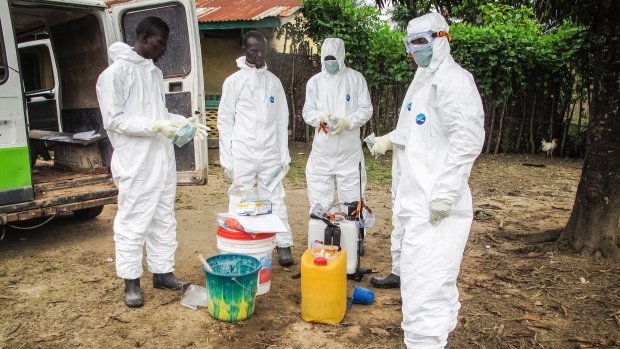
Canada has decided to suspend visa applications from residents and passport-holders from West African countries in the grip of the Ebola outbreak.
The decision follows a similar decision by Australia, which drew criticism from the World Health Organization (WHO).
The ban would apply to countries with “widespread and persistent-intense transmission”, Canada said.
Liberia, Sierra Leone and Guinea are battling to contain Ebola, which has killed almost 5,000 people.
The WHO said on October 31 that 4,951 people had died during the current outbreak, with 13,567 reported cases up to October 29.
Although Canada currently has no cases of Ebola, the country’s federal citizenship ministry said “the introduction or spread of the disease would pose an imminent and severe risk to public health”.
A government spokesman said the move was less restrictive than Australia’s plan, with the ability to grant visas on a case-by-case basis retained.

The ban would also not apply to Canadians travelling from the Ebola zone – allowing health workers and volunteers to return home.
There are no direct flights to Canada from the three worst-affected countries, and the numbers of annual visitors from those states is understood to be small.
The WHO opposes travel bans as a method of containing Ebola.
David Fidler, a professor at Indiana University in the US, told Canadian media that the government’s move undermined international regulations drawn up after the SARS outbreak of 2003.
“The whole thing that so many years and so many efforts and so much money was spent on just seems to be disintegrating in this Ebola panic,” he told CBC News.
Canada’s visa ban comes as trials get under way in Switzerland on the latest round of testing of an experimental vaccine.
The vaccine, jointly developed by US disease authorities and pharmaceutical company GlaxoSmithKline (GSK), is already being tested on volunteers in the US, UK and Mali.
[youtube _d_EIuzX9f4 650]